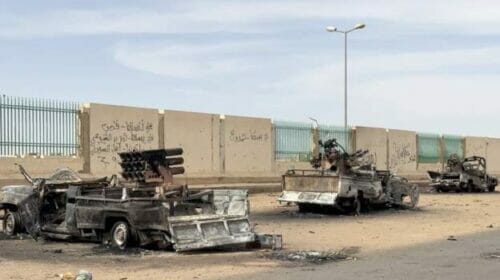Failure is not an option
 By: Jennifer Fierberg
By: Jennifer Fierberg
For the next two weeks numerous NGO’s, world government leaders and other groups will convene on the United Nations to negotiate the Arms Trade Treaty that failed to be reached in July 2012.This treaty has been in the making for six years. The goal of this treaty is to create a level playing field for international arms transfers by requiring all States to abide by a set of standards for transfer controls, which will ultimately benefit the safety and security of people everywhere in the world. These groups gather due to their Concern of the misuse of weaponry around the world. The goal of this convention is to mobilize governments and parliamentarians to call for the global regulation of the conventional arms trade.
According to the Arms Trade Treaty; “In all parts of the world, the ready availability of weapons and ammunition has led to human suffering, political repression, crime and terror among civilian populations. Irresponsible transfers of conventional weapons can destabilize security in a region, enable the violation of Security Council arms embargoes and contribute to human rights abuses. Importantly, investment is discouraged and development disrupted in countries experiencing conflict and high levels of violence, which also affect their ability to attain the Millennium Development Goals.”
Leaders from around the world have made statements in support of a strong Arms Trade Treaty. UNSG Ban Ki-Moon said in his statement on the Arms Trade Treaty, “A robust ATT will help alleviate the plight of the millions of people affected by conflicts and armed violence and enable the United Nations to better carry out its mandate to promote peace, development and human rights around the world. Adoption of this treaty will also provide much-needed momentum for wider disarmament and non-proliferation efforts by the international community.”
Secretary of State John Kerry said in a statement that the United States is “steadfast in its commitment to achieve a strong and effective arms trade treaty.” He said responsible nations “should have in place control systems that will help reduce the risk that a transfer of conventional arms will be used to carry out the world’s worst crimes, including those involving terrorism and serious human rights violations.” Kerry further stated, “An effective treaty that recognizes that each nation must tailor and enforce its own national export and import control mechanisms can generate the participation of a broad majority of states, help stem the illicit flow of conventional arms across international borders and have important humanitarian benefits.”
The next two weeks will prove to be trying for all delegates involved but all made opening statements on Monday March 18, 2013 stating they are committed to a strong treaty outcome. This treaty will only regulate international trade situations and will have NO effect at all on national gun control laws as those are protected and set by the Constitution of the United States.
A list of NGO’s who attended to negotiate this deal last July can be found here.



